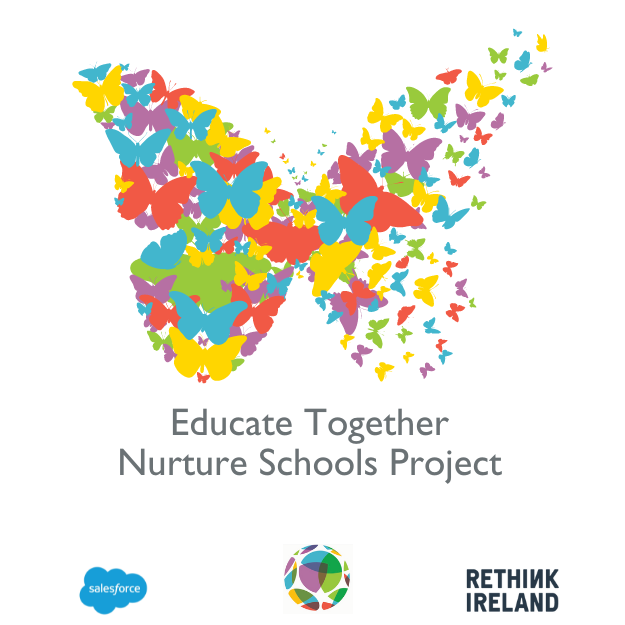 Educate Together has welcomed the findings of a new evaluation report into the organisation’s Nurture Schools project.
Educate Together has welcomed the findings of a new evaluation report into the organisation’s Nurture Schools project.
Over the past three years, Educate Together has supported a third of its school network (35 primary and post-primary schools) to adopt a Nurture approach; an evidence-based intervention that tackles barriers to student learning. Nurture is both a whole-school programme and a targeted short-term intervention. The main target group is students who have social, emotional and behavioural difficulties that are getting in the way of their learning. School staff receive Continuing Professional Development (CPD) in how to support students with these needs.
An external impact evaluation was carried out by consultant Ann Swift who recently presented its findings to policy makers, school leaders and education stakeholders at an impact evaluation event in Dublin in October 2023. The evaluation found that this low-cost, highly-effective intervention reaches students at greatest risk with positive results, including:
- students are more confident, less anxious, and better able to communicate their feelings and self-regulate;
- enjoyment of school is increased, with positive impacts on attendance and participation, and knock-on improvements in numeracy and literacy skills;
- relationships with teachers and their peers improve;
- significant improvement in behaviour across the school, and fewer incidents of disruptive behaviour in class.
See here for a summary video of the evaluation launch, and the findings can be read here.
Educate Together’s Nurture Project began in 2020 at the height of the pandemic and involved working with schools to adopt the Nurture approach to support students with social, emotional and behavioural difficulties to get them back on track and engaged in their education. Many children and young people who benefit from the project are from families with less social and economic capital and are at greater risk of educational disadvantage.
The concept of nurture in education recognises that students’ wellbeing is as important as their academic achievements. Schools applying a nurture approach address the social, emotional and learning needs of individual students by providing help to remove barriers to learning. There is a strong emphasis on emotional literacy, language development, relationships and communication.
The Nurture approach is not new, or unique to Educate Together. However this project is innovative in the application of the approach across a network of school communities, and the focus on demonstrating impact through an evidence-based approach.
Commenting on the findings published today, Educate Together CEO Emer said:
“I am always struck by the sincere commitment of Educate Together school communities to equality and inclusion – the compassion of school staff, and the determination to ensure that no child is an outsider. On their own, however, these qualities are not enough; staff need knowledge, skills and support to really understand the needs of children and young people, and to help students to understand their own behaviour – and to develop vital social and emotional skills.
This evaluation has shown how this project has provided schools with those tools, and staff with necessary skills, so that hundreds of students have been directly supported to feel safe, to cope, to develop connections and relationships, and to re-engage with school – for the most part, children and young people who other approaches simply didn’t work for”.
The event included input from psychologists, including Dr. Paul D’Alton and Dr Sharon Lambert who is a senior lecturer in the School of Applied Psychology, UCC. Speaking at the event, Sharon stated:
“There’s no question but that stress impacts on learning, and educational disadvantage impacts on a child’s physical health, their mental well-being and their future outcomes. So, the longer we keep children in school the less money it costs in the long term for the state. And also, there’s less human cost because children can reach their potential”.
Recommendations
Nurture is a cost-effective intervention that aligns with national educational policy. This three-year project, which was funded by Salesforce and Rethink Ireland’s Education Innovation Fund, is coming to an end, Educate Together would like participating schools to have continuity of support for this successful approach, and is interested in hearing from potential funders and partners. Educate Together is also calling for this approach to be made available to schools nationwide. Consequently, Educate Together recommends:
- The Department of Education should engage in a national pilot of the Nurture approach in schools across Ireland.
- All schools should have access to the necessary supports to employ the Nurture Approach as a wellbeing intervention. This includes staffing allocation, Continuing Professional Development and grant aid.
- The Department of Education’s Planning and Building Unit should explicitly support the allocation of space in schools for the provision of Nurture supports.
More and more schools want to offer this approach to students who will benefit. Schools now need to be resourced to continue this successful approach.
